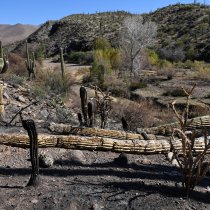NEON Educational Resources for Online Teaching
March 26, 2020
NEON offers a variety of tools and resources for instructors and faculty moving to online teaching. We realize that these are challenging times for our communities around the globe to delivery high quality education in novel online teaching environments. The data and resources from NEON are naturally suited for teaching ecological concepts and skills in both synchronous and asynchronous learning situations.
Teaching Modules
NEON has worked with undergraduate and graduate faculty and instructors to develop classroom-ready teaching materials using NEON data. These open educational resources focus on teaching key ecological or environmental science concepts while incorporating important data skills. Materials are available for working with data in a variety of platforms including web interface/GUIs, spreadsheets, and the R programming language. You can find these collaboratively developed materials shared on the QUBESHub platform or find additional resources developed by the community on NEON’s Teaching Modules page.
Do you have teaching materials you’ve developed using NEON data or resources? We’d love to help you share them with other instructors interested in using NEON data. Please contact our team of science educators so that we can help you promote the materials you’ve created.
NEON Data Tutorials
NEON Data Tutorials, while designed for independent learning of important data skills, can readily be adapted for use in online or classroom teaching. Since these tutorials are already online, instructors can use them to help students learn important data skills in both synchronous and asynchronous online learning environments. The data skills are taught within an ecological context that instructors can weave into existing content to support the teaching of key concepts in their curriculum. Data tutorials are available in a variety of programming languages or tools, including R, Python (primarily remote sensing topics), Git/GitHub, and others.
NEON Data & Tools to Use It
All of the NEON data and tools to assist in using and understanding NEON data are available for instructors to use as the base for building new lessons and teaching materials. Use the Explore NEON Data page to find and access all NEON data. Other tools that instructors and faculty frequently find useful include:
- Getting Started with NEON data page: This page provides valuable information and resources to help you start working with NEON data.
- NEON Field Site pages: the summary information can be used to provide quick comparisons between sites, plus the map (turn on satellite view) and image galleries provide visual context for data students are using. Map of all Observatory sites. Example field site page: Central Plains Experimental Range (CPER).
- Code Resources page: NEON scientists and the NEON user community have developed a variety of code packages to facilitate working with NEON. These tools may be useful particularly for upper division undergraduate and graduate courses.
NEON Science Videos
NEON videos can be used in a variety of settings from introducing students to NEON to explaining important science concepts and tools. Below are three playlists that instructors may find particularly useful but NEON provides other videos as well and all can be found at youtube.com/NEONScience.
Videos from the Science Explained playlist, are short, 3-5 minute animated videos explaining key concepts or techniques related to the science that is enabled by the NEON program. From an introduction to eddy covariance to understanding how lidar works or how plant phenology can be measured on the ground or from space, NEON’s Science Explained videos can be used in many educational settings.
Videos from the NEON Science Explained playlist can be used to provide an introduction to the NEON program and data that are to be used in subsequent teaching materials. Similar to the NEON Field Site pages, the videos in the NEON Field Site Videos playlist can be used to contextualize NEON data by showing the landscape at which the data are collected. This can help students better understand and interpret the results of their analyses. This series currently includes videos for 15 of the 81 field sites with additional videos being developed and added to the playlist.
If you're looking for a deeper dive into specific topics, several of our video series are essentially mini-courses, including the topics of fundementals of remote sensing and ecological forecasting.
Individual Questions & Support
NEON is also here to support faculty and instructors with their individual questions and teaching needs. If you have specific questions about NEON data or resources, please contact us and we can provide individual support.

